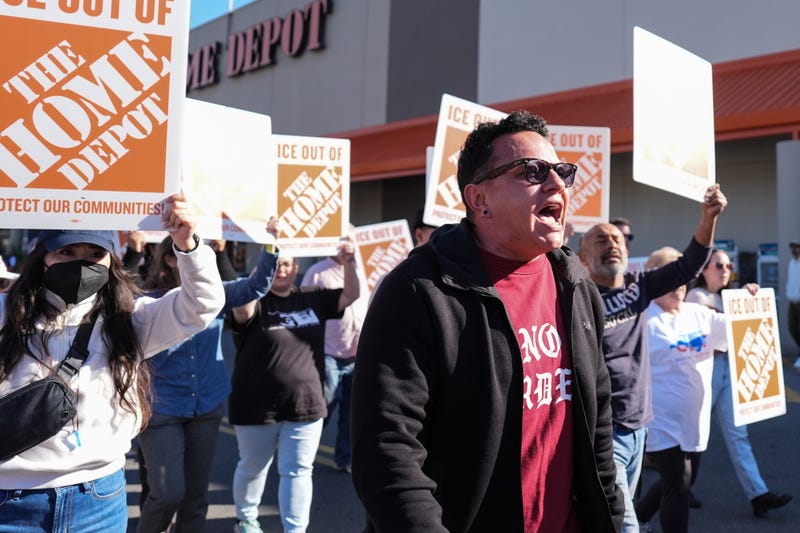
RALEIGH, N.C. (AP) — Federal agents have now arrested more than 250 people during a North Carolina immigration crackdown centered around Charlotte, the state’s largest city, the U.S. Department of Homeland Security said Wednesday.
The operation that began over the weekend is the latest phase of Republican President Donald Trump's aggressive mass deportation efforts that have sent the military and immigration agents into Democratic-run cities — from Chicago to Los Angeles.
Immigration officials have blanketed the country since January, pushing detention counts to all-time highs above 60,000. Big cities and small towns across the country are targeted daily amid higher-profile pushes in places such as Portland, Oregon, where more than 560 immigration arrests were made in October. Smaller bursts of enforcement have popped up elsewhere.
The push to carry out arrests in North Carolina expanded to areas around the state capital of Raleigh on Tuesday, spreading fear in at least one immigrant-heavy suburb.
The number of arrests around Charlotte and beyond during what the government has dubbed “ Operation Charlotte’s Web ” was about double the total announced by DHS officials earlier this week. The department said in a statement that agencies “continue to target some of the most dangerous criminal illegal aliens.”
Their targets include people living in the U.S. without legal permission and those who allegedly have criminal records.
Federal officials have offered few details about those arrested. They've also remained quiet about the scope of the enforcement operations across North Carolina and where agents will show up next, keeping communities on edge.
The crackdown in Charlotte has been met with pockets of resistance and protests.
About 100 people gathered outside a Home Depot store in Charlotte on Wednesday, where federal agents have been spotted multiple times since the surge started. Protest organizers briefly went inside the store with orange and white signs that read, “ICE out of Home Depot, Protect our communities.”
Arrests in Charlotte and the Raleigh area have created a chilling effect in immigrant neighborhoods — school attendance dropped, and small shops and restaurants closed to avoid confrontations between customers and federal agents.
Customers at a laundromat left behind their clothes in washers and dryers and haven't returned after agents showed up at a Charlotte shopping center on Sunday, said David Rebolloso, who owns the business.
Agents didn't target his laundromat, but it still impacted his bottom line and shut down the neighboring shops, said Rebolloso, a Mexican American born in Brownsville, Texas.
“We’re only open because I’m an American citizen, so it doesn’t bother me,” he said. “But of course, business is down. I have no customers.”
Just days after beginning the crackdown in North Carolina, Border Patrol agents were expected to arrive in New Orleans by the end of the week to start preparing for their next big operation in southeast Louisiana, according to documents obtained by The Associated Press and three people familiar with the operation.
Around 250 federal border agents are set to descend on New Orleans in the coming weeks for a two-month immigration crackdown expected to begin in earnest on Dec. 1.
Gregory Bovino, the Border Patrol commander tapped to head the Louisiana sweep, has been on the ground in North Carolina this week, leading the operation there as well.
Louisiana Republicans voiced their support on Wednesday. The chair of the state party, Derek Babcock, said it shows a commitment from Trump and Republican Gov. Jeff Landry to “keeping our citizens safe.”
The head of the state's American Civil Liberties Union chapter said they were compiling information to help people know their rights and coordinating with legal services and groups connected with the immigrant community.
“We urge those with privilege and the opportunity to risk it to stand up for their neighbors and friends,” said Alanah Odoms with the ACLU of Louisiana.
___
Associated Press reporters Erik Verduzco in Charlotte, Elliot Spagat in San Diego, Safiyah Riddle in Montgomery, Alabama, Sara Cline in Baton Rouge, Louisiana, and John Seewer in Toledo, Ohio, contributed.